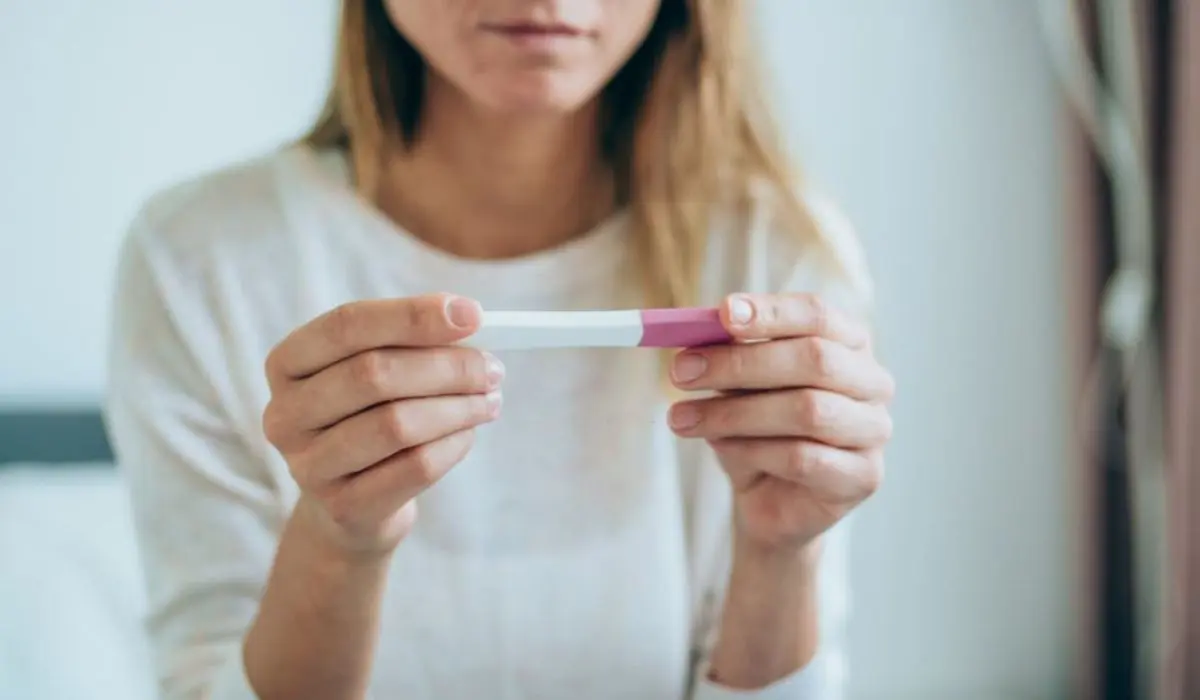Being 2 months pregnant marks an exciting milestone – you’ve likely just found out you’re expecting and the first trimester is underway! The early weeks of pregnancy bring many changes to your body as it adjusts to nurture your growing baby.
While every pregnancy is different, there are some common symptoms women experience around the 2 month mark as hormones ramp up and your baby develops.
Let’s explore some of the most notable changes and symptoms to expect when you’re 2 months along.
Early Pregnancy Symptoms
Some of the earliest signs of pregnancy may start shortly after conception, even before you miss your period. Sensitive pregnancy tests can often detect a positive result as early as 10-14 days after fertilization.

Some subtle early clues include:
– Missed or late period
– Light spotting
– Fatigue
– Tender or swollen breasts
– Nausea
– Increased urination
– Food aversions
– Moodiness
– Raised basal body temperature
If you’re displaying some of these symptoms, take a pregnancy test to confirm – you may very well be 2 months pregnant!
➜ Nausea and Vomiting
One of the most common complaints during the first trimester is nausea and vomiting, infamously known as “morning sickness.” The flooding of pregnancy hormones like hCG and estrogen can wreak havoc on your digestive system.
More than half of all pregnant women experience nausea between weeks 6-12, and it may last up to week 14 or longer for some unlucky women.
While called morning sickness, nausea can strike any time of day. Some tips to manage it include eating small, frequent meals, sticking to bland foods, avoiding triggers like strong smells, and taking vitamin B6 supplements.
➜ Fatigue
Extreme tiredness and fatigue also go hand in hand with early pregnancy. Your body is working overtime, your hormones are surging, and your blood sugar and blood pressure are dropping. All this can sap your energy levels.
The best thing you can do is take it easy and get as much rest as possible. Take naps, go to bed early, and sit down whenever needed. The second trimester often brings some relief from fatigue.
➜ Breast Changes
As your breasts prep for milk production and breastfeeding, you’ll notice big changes by 2 months. Your breasts may feel swollen, tingly, or tender to the touch. The areolas often darken and your veins become more visible.
As progesterone relaxes connective tissue, some women experience breast fullness or enlargement. Invest in comfortable bras with extra support.
Related: Leg Cramps During Pregnancy – Precautions & Risk Factors
➜ Urinary Frequency
Around 6-8 weeks, your expanding uterus begins putting pressure on your bladder. This leads to more frequent urination as your bladder capacity decreases.
You may find yourself getting up multiple times a night to pee. Drink plenty of fluids during the day but cut back before bedtime to help minimize middle-of-the-night bathroom runs.
➜ Food Cravings and Aversions
Shifting hormones can significantly impact taste preferences. You may suddenly develop intense cravings for certain foods.
Or find yourself repulsed by foods you used to enjoy. Give in to harmless cravings in moderation. But if an aversion is limiting your diet, find alternatives to get needed nutrients. These sensations should ease up by weeks 14-16.
➜ Mood Swings
Your hormones are in overdrive, and that can affect your emotions. It’s common to experience mood swings like heightened irritably, anxiety, excitability, or inexplicable tearfulness. Don’t be afraid to speak up and get support from your partner during this sensitive time. Try relaxation techniques and give yourself grace.
➜ Constipation
Progesterone also slows digestion, which can lead to problems with constipation. Drink plenty of water, add fiber to your diet, and stay active to keep things moving. Using a squatty potty can also help. Let your doctor know if constipation becomes painful or severe.
➜ Heartburn
The hormone progesterone relaxes the valve between your stomach and esophagus. This allows acidic stomach contents to leak upwards, causing a burning sensation. To minimize heartburn, avoid trigger foods, don’t lie down after eating, and take antacids as needed. Sleep with your head elevated.
➜ Round Ligament Pain
As your uterus expands, you may feel twinges, pulling, aches or sharp pains in the lower abdomen or back. This is caused by the two large round ligaments that support the uterus. Changing positions, massage and heating pads can help. If it’s severe, consult your doctor.
Conclusion
The first weeks of pregnancy bring an array of new sensations and symptoms. But these are generally manageable with some tweaks to your lifestyle. Take it slow, listen to your body, and voice any concerns at your prenatal visits.
The excitement of your growing baby can help you power through any discomfort. Stay positive knowing the second trimester often brings relief. With the right care, you and your precious little one will continue thriving.
FAQ
Hormonal changes are the main cause of nausea and vomiting during pregnancy. Rising levels of hormones like hCG and estrogen can disrupt the digestive system and trigger nausea. Morning sickness often peaks around week 9.
Many women find fatigue lessens during the second trimester as the body adjusts to hormonal changes and increased blood volume. But fatigue can come and go throughout pregnancy. Be sure to continue resting as needed.
Yes, strong food cravings and aversions are very common in early pregnancy due to hormonal fluctuations. Cravings typically become less intense by the end of the first trimester. If an aversion interferes with nutrition, find alternative sources of key nutrients.
Rising hormone levels signal the breasts to start preparing for lactation and breastfeeding. This causes swelling, tenderness, darkened areolas, and prominent veins. Discomfort should lessen after the first trimester. Wear supportive bras.
As the uterus grows, it puts pressure on the bladder leading to frequent urination. This usually persists until around 16-18 weeks when the uterus rises out of the pelvis, reducing downward pressure. Limit fluids before bedtime.
Also Check: Natural Birth Control: Home Remedies To Avoid Pregnancy – Unlock The Secrets

